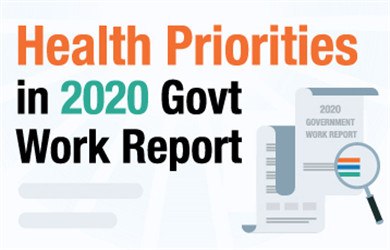British AI medical start-up set to seize "Healthy China" opportunities
BEIJING -- British artificial intelligence (AI) healthcare firm Babylon is hoping to work with more partners in China to improve healthcare coverage and quality nationwide as the country's "Healthy China 2030" campaign creates abundant opportunities.
While China may not have been an early adopter of AI in healthcare, it has rapidly developed to become the world's leading investor in AI in healthcare, the company's founder and CEO Ali Parsa told Xinhua.
China rolled out an AI development plan in 2017, with smart healthcare as an important field of the technology's future application. The result is a plethora of Chinese companies ranging from start-ups to tech giants seizing the opportunity to apply AI to everything from machine reading of CAT scans to processing and analyzing medical queries, he observed.
China's health system faces a number of common global challenges, such as an aging population, an increase in chronic diseases, shortages of quality medical resources and rising public medical expenses, he said. "AI technology could revolutionize healthcare for medical professionals and patients by saving time and improving how we diagnose, manage and treat diseases."
Chinese authorities in 2016 released "Healthy China 2030," a blueprint that covers areas such as public health services, the medical industry, and food and drug safety with the aim of improving the health of Chinese people.
Having built an advanced suite of AI-powered health tools in the United Kingdom for the National Health Service, and a health service that works across Rwanda, Parsa believes their digital-first healthcare services could be a strong foundation to pioneer value-based care in China.
He said patients in rural China would have their own, unique barriers to accessing healthcare, while the services delivered to patients in China would be adapted after understanding the problems in local healthcare delivery.
Set up in 2013, the London-based firm offers a single platform that acts as a digital-first gateway to integrated health services, including chronic condition care management, pre and post-procedural home care, and other digitally facilitated care pathways.
The company in 2018 inked a partnership with Chinese tech giant Tencent to enable some 1.1 billion users of its popular social media platform WeChat to enjoy digital healthcare services.
"In 2020 we will be announcing exciting new milestones about our work in China," Parsa said.


